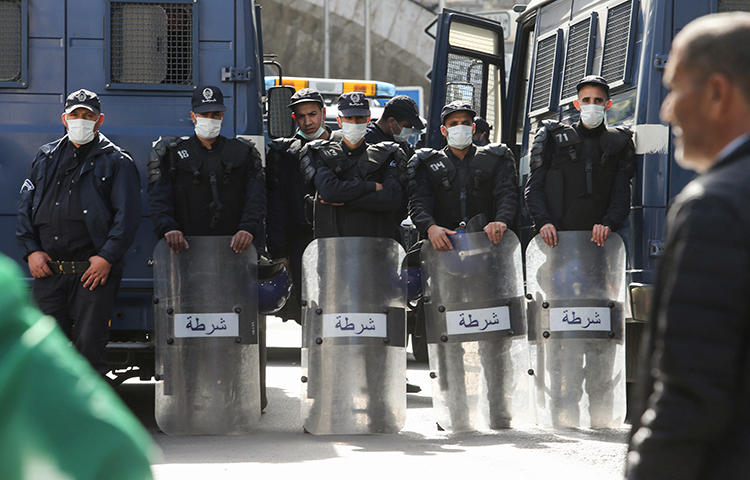On April 1, 2020, officers of Algeria’s National Gendarmerie arrested three employees of the privately owned Essawt El-Akhar daily newspaper and interrogated them about a story the paper published that day about the COVID-19 pandemic, according to news reports and Abdelrahman Saleh, the employees’ lawyer, who spoke to CPJ via messaging app.
Officers detained reporter Meriem Cherfi, publications manager Rafik Mouhoub, and editor-in-chief Mohamed Lamari for about two hours at the gendarmerie headquarters in Algiers before releasing them without charge, according to Saleh.
The three were interrogated about an article in Essawt El-Akhar alleging that the Pasteur Institute in Algiers–the main state facility dedicated to studying COVID-19 in the city—had published incorrect test results from patients with the virus, according to Saleh and those news reports.
On April 2, a national prosecutor at the Sidi M’Hamed Criminal Court in Algiers charged Cherfi, Mouhoub, and Lamari with committing an “attack on national unity” through their work at the newspaper, an offense under the criminal code, Saleh said. If convicted, the three could each face up to 10 years in prison, according to Saleh and those reports.
The national prosecutor requested the three remain in detention, but the judge ordered them to be released under judicial supervision until the end of the investigation, Saleh told CPJ. He said the Essawt El-Akhar staffers are barred from traveling abroad and are required to present themselves to the judge every week. He said the investigation may take between four and eight months.
The judge can replace the judicial supervision order with a prison sentence at any time, Saleh told CPJ.
CPJ emailed the Algerian Ministry of Justice and the Pasteur Institute of Algiers for comment, but did not immediately receive any replies.
On March 25, a judge in Algiers replaced the judicial supervision of Algerian journalist Khaled Drareni with a prison sentence, as CPJ documented at the time.
